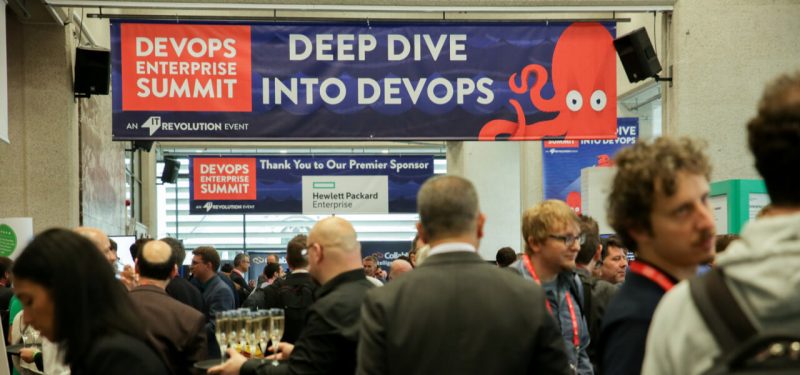Every year, I’m asked which DevOps conferences are the best to attend. I get this question from friends, colleagues, Twitter. The short answer is, "It depends."
Sometimes, people are looking to grow their network and meet new people in their local area; community events like DevOpsDays and meetups are great for this. Sometimes people are looking for specific technology or tooling questions or communities; for those, I can point them to a particular vendor conference, open-source conferences, or topical conferences such as those focusing on SRE, languages, or agile.
However, when the person who is asking me, “Which conference is the best use of my time and money?” is leading a technology transformation, I always point them to the DevOps Enterprise Summit. It has consistently become one of my favorite and most valuable conferences to attend.
Why do I say this? Two reasons: community and content.
Community
First, the DevOps Enterprise Summit (DOES) brings together the brightest minds leading the largest, most difficult—and most interesting!—digital transformations from around the globe. While many of us know that "the hallway track" (that is, the time when we can meet each other and visit between sessions) is the most valuable time at a conference, it's never more valuable than at DOES.
That's because at DOES, everyone can ask the hard questions about technology (What tools are you using? How did you stitch them together?), process (How did you get legal and information security on board? What about regulatory constraints?), and culture (What's the best way to champion this to your exec team? What about rolling this out in a distributed org with time zones that don't overlap? How do we preserve culture?).
You’re also sharing success stories and pain points and everything in between with experts and people still figuring it all out together.
The best part of DevOps is the community, and DOES does the best job of bringing the enterprise transformation leadership community together.
[ Special Coverage: DevOps Enterprise Summit London 2019 ]
Content
A conference is nothing without fantastic content, and DOES doesn’t disappoint. The committee carefully curates the program, selecting each talk to ensure it follows a particular case study format: experienced speakers who outline the problem, present the solution, and discuss challenges.
One of my favorite aspects of many presentations is the discussion of how technology and business have partnered to help the transformation effort succeed. This is a key strategy in so many enterprises, and it's the "secret sauce" that so many attendees take back home.
Most talks present work that evolved over several years, and some speakers come back to present updates year-over-year, so we can see how things are progressing—both the challenges and the wins. DOES is a unique format because all too often at other conferences, speakers only discuss their wins. At DOES attendees have the opportunity to see the real challenges facing companies—along with what strategies they're using to accomplish the work in real time.
I love this because it ensures that the problems—and their solutions—take center stage. There are no vendor pitches at DOES.
Wide range of topics
At DOES you’ll find talks about topics that include legacy code, change approval boards, highly regulated industries, large infrastructures, partnering with colleagues in the business like legal and compliance (and yes, even procurement!) to get the job done, and how to roll out solutions across cloud infrastructures.
My biggest problem is finding time to get to all of the talks I want to go to! Luckily, all of the talks are posted online.
Come see me at DevOps Enterprise Summit: London, where I'll be participating in the Workforce Engagement panel discussion. The conference runs June 25-27.
Keep learning
Take a deep dive into the state of quality with TechBeacon's Guide. Plus: Download the free World Quality Report 2022-23.
Put performance engineering into practice with these top 10 performance engineering techniques that work.
Find to tools you need with TechBeacon's Buyer's Guide for Selecting Software Test Automation Tools.
Discover best practices for reducing software defects with TechBeacon's Guide.
- Take your testing career to the next level. TechBeacon's Careers Topic Center provides expert advice to prepare you for your next move.



